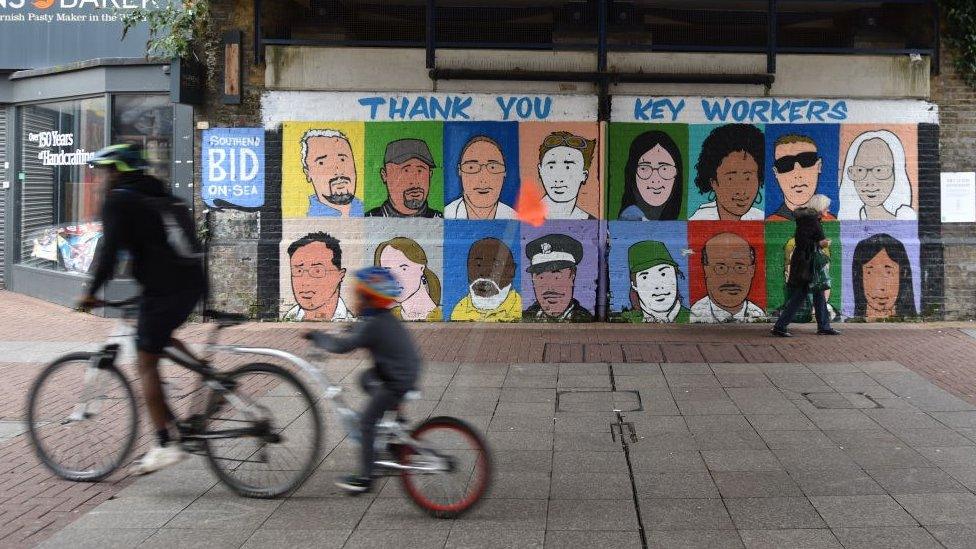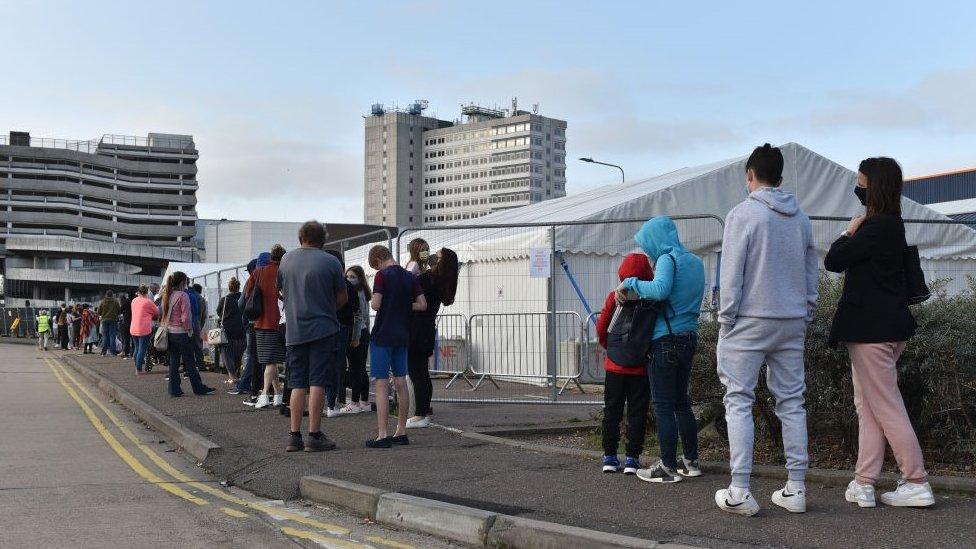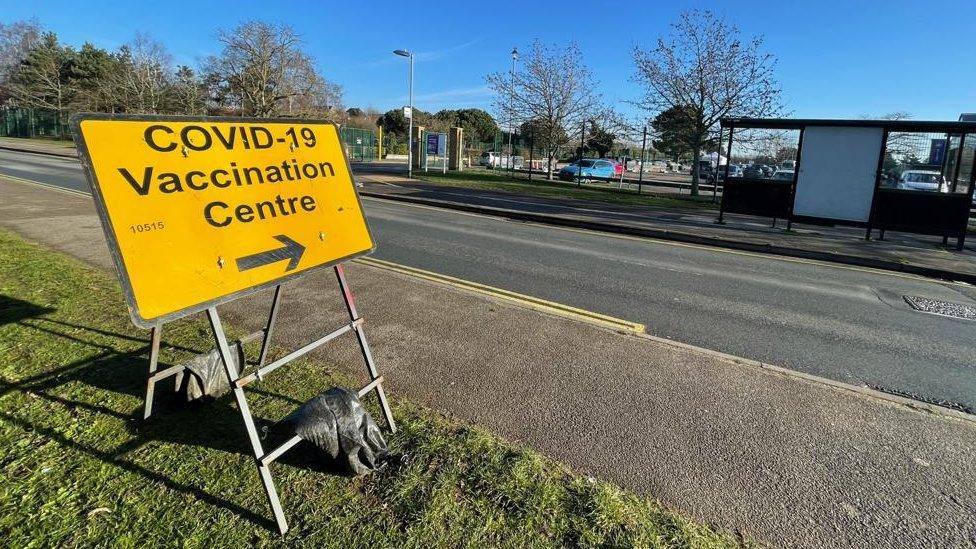Covid-19: Southend's infection rate rise 'rapid and worrying'
- Published

Southend could soon reach a rate of more than 200 cases per 100,000 people, according to its public health director
A town's "rapid and worrying" rise in Covid-19 case could see it surpass its previous peak by the end of the week, its director of public health has said.
According to Southend Borough Council, external, the infection rate in the town stood at 176.4 per 100,000 people as of 9 December, up from 115.8 on 29 November.
The council said it recorded its highest rate of 180.8 on 19 November.
"Our rates are going in the wrong direction," said its director of public health, Krishna Ramkhelawon.
Southend Hospital, external, where 12 ambulances were pictured queuing outside accident and emergency, external on Wednesday, said it was "extremely busy" with high numbers of patients.
It would not be drawn on the number of Covid-19 patients, but the council said there were 203 patients with the virus in Mid and South Essex hospitals as of 4 December, up from 145 the previous week.
This includes Basildon Hospital, which is dealing with one the country's highest infection rates of the virus, and Broomfield Hospital in Chelmsford.
The number of inpatients was now similar to that at the start of the pandemic, the council added.
'Strain on the system'
The Covid-19 infection rate in England fell slightly to 152.1 per 100,000 as of 5 December.

People queuing for a Covid-19 test in Southend on 17 September 2020
"Although our rate remains lower than some other areas locally and regionally, we are starting to see a worrying and rapid rise, and we expect to be above 200 per 100,000 by the end of the week, which would be the highest case rate we have seen locally," said Mr Ramkhelawon.
"Hospitals across Mid and South Essex are seeing a rise in Covid-19 admissions, which is putting a strain on the local system at a time of year when it is already busy and challenging.
"We must all remember that every positive case is a potential hospitalisation, and every hospitalisation could lead to the death of a loved one.
"We must also remember that someone can carry and spread this disease without showing symptoms.
"We should therefore treat other people from outside our household as a potential positive case and social distance accordingly.
"I cannot emphasise enough how important this is to prevent the virus spreading further."

What do I need to know about the coronavirus?
LOCKDOWN LOOK-UP: The rules in your area
SOCIAL DISTANCING: Can I give my friends a hug?
PAY-PACKET SUPPORT: What do chancellor's plans mean for wages?
SUPPORT BUBBLES: What are they and who can be in yours?

Find BBC News: East of England on Facebook, external, Instagram, external and Twitter, external. If you have a story suggestion email eastofenglandnews@bbc.co.uk
- Published9 December 2020

- Published1 April 2021

- Published4 December 2020
